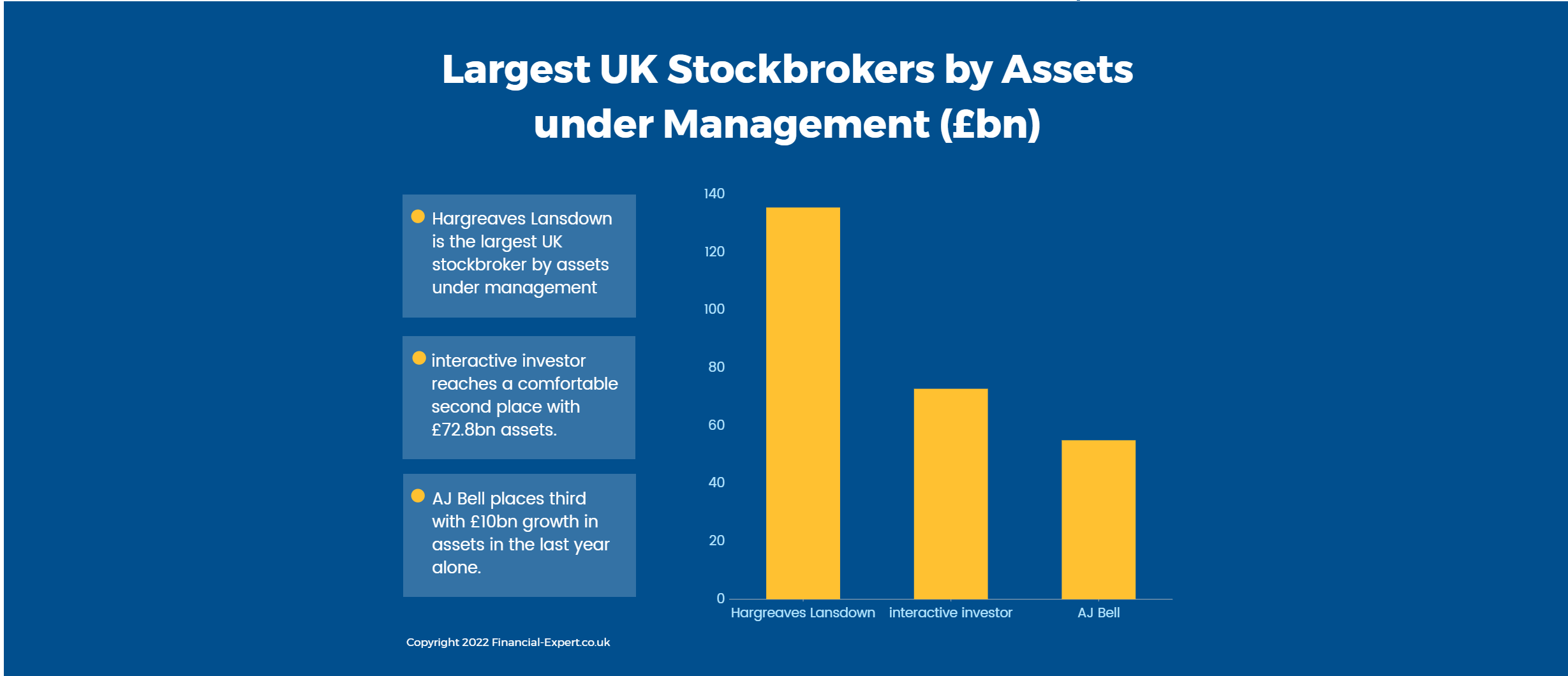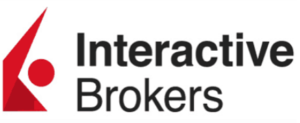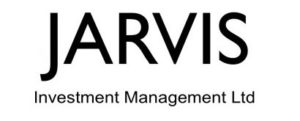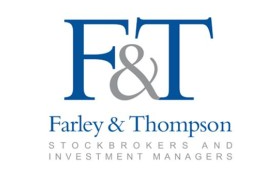Our comprehensive ranking of the best UK stockbrokers
Why our ranking is unrivalled
87 brokers featured - unparalleled range
All fees considered
FCA regulated brokers only
Updated monthly
Exclusive bonuses. Click through Financial Expert to be sure you're getting the best deal (UK investors only).

The verdict: our shortlist of the best UK stockbrokers
The pros and cons of the brokers that scored highest in our reviewsOverview
eToro's investing app offers commission-free share trading. Get started with only £80. Benefit from exclusive social trading features to discover fresh trading insights and emulate the platform's leading traders.
Best for
- Cheapest share dealing
- Lowest annual charge
- Copytrade™ feature
- ISA now available
Drawbacks
- No OEICs or unit trusts
- $5 withdrawal fee
- No Stocks & Shares ISA
Capital is at risk. Other fees apply. For more information, visit etoro.com/trading/fees.
Overview
Best for
- Widest range of funds
- ISAs & SIPPs available
- Most popular UK broker
- Competitive management charge for < £50k portfolio
Drawbacks
- Management charge for > £50k portfolio is less competitive
- Share dealing charges are £11.95 for infrequent deals
Overview
Best for
- Lowest management charge for large portfolios (£100k+)
- ISAs & SIPPs available
- One free trade per month
- New low trade fee of £5.99
Drawbacks
- Flat £9.99 account charge is costly for small accounts
- Web platform interface isn't as slick as peers
Overview
AJ Bell Youinvest stocks & shares ISA offers lower prices the more you trade! Which?™ 'Recommended Provider' for the last 3 years.
Best for
- Invest regularly from £1.50
- Great share research tools
- Participate in IPOs
- Free withdrawals & no inactivity fees
Drawbacks
- No clear drawbacks
- An all-rounder that stays competitive as your account grows
Overview
Best for
- Auto portfolio management for peace of mind
- Great value management fees
- Ethical options available
- Largest UK service of its kind
Drawbacks
- Cannot invest in individual shares or funds
- More expensive than a DIY investing portfolio
Overview
Best for
- Large range of funds
- Fidelity Wealth Management service is free for >£250k
- Simple, flat £10 trading fees
Drawbacks
- No key drawbacks
- An all-rounder that stays competitive & unlocks benefits as your account grows
Capital is at risk.
Capital is at risk. Other fees apply. For more information, visit etoro.com/trading/fees.
Compare the cheapest stockbrokers by trading fees
Slash the amount you pay in fees to place trades by choosing the cheapest online stockbrokers for dealing fees.
As a guide, expect to pay between £5.99 and £11.99 for each trade you make with a traditional broker.
However, if you pick from the top of this ranking, you could trade for zero commissions. That's right - zero.
The stockbroker with the lowest trading fees is currently eToro, which is a big reason why we concluded in our eToro broker review that eToro was the cheapest UK stockbroker overall.
Lowest trading fees
(Single share trade)
Lowest trading fees
(10+ monthly share trades)
Lowest fund purchase fees
Compare cheapest investment platforms by account charges
If you plan to buy and hold your investments over the long term, account charges may limit your success. As the value of your account begins to grow, it’s likely that account charges will increase too - eating into your returns.
Most online stockbrokers charge between 0.25% and 1% of your portfolio value. These charges are also known as platform fees, management charges and administration fees. They are usually charged monthly or quarterly.
The cheapest online stockbrokers charge between £0 and £10 per month.
By finding a broker with low fees, all else being equal, your investment value will grow quicker. Who wouldn’t want that?
The UK stockbroker with the cheapest account fee is eToro, which does not charge a periodic account fee. Other charges may apply therefore be sure to familiarise yourself with all fees and charges.
Monthly account fees
(Based on £5,000 share portfolio)
Check the small print
The fee T&Cs of stockbrokers do vary therefore always read the full fees & charges page before you invest.
Monthly account fees
(Based on £100k portfolio of £30k shares and £70k funds where available)
Double check
The fee T&Cs of stockbrokers do vary therefore always read the full fees & charges page before you invest.

Our stockbroker award winners 2024
Who received a tip of the hat this year?Category winners
All London Stock Exchange brokers
Here's our complete list of every member broker of the London Stock Exchange.
A member broker of the London Stock Exchange (LSE) is a financial institution or entity that has been granted membership privileges to participate in the trading activities on the LSE. These brokerages play a vital role in facilitating the buying and selling of various financial instruments, including stocks, bonds, and other securities, on the LSE's trading platform.
They act as intermediaries between investors, providing access to the exchange's trading infrastructure, executing trades on behalf of their clients, and ensuring compliance with the LSE's rules and regulations. Member brokers contribute to the liquidity and efficiency of the LSE's marketplace, serving as key players in the world of financial markets.
All stock brokers

Since 1833, Arbuthnot has provided financial services. Winner of CityAM Bank of the Year Award (2019)

Bespoke portfolios and an Inheritance tax portfolio service are among the offerings of Blankstone Sington.
Operating from over 30 network offices, Brewin Dolphin is a public company in its own right.
A platform for financial advisers and wealth managers to manage client assets. Founded in 1996.
Independent stockbroker based in Harrogate. Cardale has kept its back-office function completely in house.

As much a financial adviser as they are a stockbroker. This multi-disciplinary team is based in Northampton.

Charles Stanley was one of the first 'discount brokers' to bring investing into the low-cost era.

Credo engages directly with wealth management clients, as well as offering intermediary services to other financial advisers.

Dowgate serves private clients as well as corporate broking services. It fosters an entrepreneurial spirit in staff.

Swiss banking group providing investment services to retail investors, alongside fully-fledged private banking.

Equiniti provide transaction and custodial support to other financial services businesses. Retail trading is offered via Shareview.

Italian online broker with huge growth ambitions in the UK and a popular trading platform.
Founded in 1973 by Clive Fiske Harrison. Clients use an online portal to view investment insights.

Founded in 1992, Hedley & Co are a leading Independent Stockbroker and Wealth Manager in the North West.

A tech firm operating the Hubwise investment platform; a multi-wrapper transaction processing engine.

IG Markets, run by FTSE 250 constituent IG Group offers a vast array of trading products for serious traders.

An international group with $9n in capital. IB provide simple and complex securities to retail investors.
JM Finn & Co oversees 18,500 client accounts. Some clients have trusted the firm for several generations.
James Brearley has been providing investment management and share dealing for 100+ years.

The history of James Sharp & Co began in Bury in 1885, and has been run as a tight-knit team ever since.

Jarvis offers stockbroking services to their own clients, plus the clients of other financial institutions.

Hanson Investment Management (part of Oberon) grew out of a family office for the Janson family.
The Pilling Ideal Portfolios (PIPs) offer clients a bespoke portfolio made up of unit trust, OEICs and investment trusts.
Ramsey Crookall offers, among other services, a portfolio model service called Shearwater.
The tagline of Ravenscroft is 'Investments for everyone'. They manage £7.75bn of assets.

Part of US firm, with £13.6bn of assets under management, Raymond James came to the UK in 2001.

Providing advice services to private clients and those of other wealth management firms, such as St. James's Place.

From their offices in London, Edinburgh and Jersey, more than 400 7IM employees manage over £17 billion.
Smith & Williamson is a top-10 accountancy firm. As such, they provide a suite of services.
Thomas Grant & Company offer share dealing & ISAs Thomas Grant also offer derivatives to professional investors only.
Retail investor brokerage platform including ISAs. Tilney merged with Smith & Williamson in 2020.
Best stockbrokers (bank & building societies)
Historically, banks have dominated the brokerage market, primarily by extending their services to their existing clientele with current accounts and mortgage products. Nevertheless, these providers often do not offer the most competitive services, as they do not face intense competition.
Banks possess a pre-existing customer base, allowing them to promote their brokerage services without relying heavily on attracting new customers through a highly appealing proposition. Consequently, banking stockbrokers are typically not found at the forefront of industry rankings, generally speaking.
Due to their higher trading fees, and moderate account fees. The stockbrokers below have not successfully placed in our stockbroker awards this year.
Banks & building societies
Lloyds Banking Group is one of the largest 20 companies listed on the London Stock Exchange.
Nationwide Building Society regularly tops reviews for customer service to its banking clients.
Natwest is 56% owned by the UK government. It has the 3rd largest number of UK branches.

Since 1833, Arbuthnot has provided financial services. Winner of CityAM Bank of the Year Award (2019)
Best UK stockbrokers (life assurers)
Life insurance and pension companies maintain a substantial presence in the investment market, owing to their significant asset holdings and established trust among millions of long-term financial seekers in the UK.
Many of the largest insurers also provide brokerage accounts and, in numerous cases, their own investment funds. They specialize in offering tax-efficient investment options in the stock market or accessing returns linked to stock market performance, catering to the preferences of older investors who prioritize financial stability. These firms often attract new clients based on their reputable brand names rather than solely relying on competitive fee structures.
It is worth noting that none of the online trading accounts mentioned below have received accolades in our stockbroker awards this year.
Life assurers
Multinational insurance company with 18m customers, formerly known as the Norwich Union

One of European's largest asset managers (£1.2 trillion assets under management). Offers SIPP accounts only

Dutch insurance & pension provider serving UK clients for 190 years. Offers a stocks & shares ISA with Retiready
Known affectionately as 'The Pru' by British investors. The insurer was formed in 1848 and acquired by M&G plc.
Stockbrokers (asset managers)
Asset managers

The international division of fund manager Fidelity provides access to funds from Fidelity and other asset managers
The US mutual which brought index funds to the world. Vanguard Investor is limited to Vanguard products only.
Best Online Trading Platforms
Not all stockbrokers hold direct registration with the London Stock Exchange or fall into the categories of banks, asset managers, or life insurance companies.
Numerous firms specialize in catering to UK retail investors by offering straightforward, cost-effective, and easily comprehensible investment services. The following list comprises such specialist share dealing services dedicated to providing execution-only trading options for UK investors.
While these firms may be smaller in scale compared to institutional competitors, they might excel as online brokers due to their user-friendly interfaces, attentive customer support, and more budget-friendly trading alternatives than their larger counterparts.
Share dealing services
One of European's leading trading platforms, boasting 2 million clients (mainly outside UK)
M&G Plc owns Prudential and offers stockbroking solutions through its own M&G Investments brand
Leeds-based full-service stockbroker founded in 1875 that stills allows you to talk to a real stockbroker
Low-cost online share dealing service designed to be straightforward for clients to use
Stocks & Shares ISAs with pre-designed 'funds of funds' to make stock selection a thing of the past
Atlantic Markets offers a managed service which sees a fully qualified Chartered CISI member oversee your trades.

Philip J Milton offers a telephone brokerage service alongside plenty of financial advice options
Best brokers for investment apps
Trading shares online is no longer a five-step process involving multiple passwords and pieces of paper. Online trading is now possible with one or two steps, and nowhere is this more evident than the latest UK investment apps. Good investment apps are clutter-free and provide a quick way to browse the markets and quickly snap up or dump shares in an instant. The best investment apps can do all this plus they provide all the market data, price history and analyst insight you’d expect from a full online trading platform. We named eToro as the best investment app this year. It’s our favourite trading app due to its unique social features, low fees, and a large range of investment options.
Investing apps
One of the UK's most popular trading apps - currently closed to new users. We recommend eToro as an alternative.
While you eat, drink, work and sleep, Plum's clever system will automatically help you invest
One of the UK's brightest fintech start-ups, Revolut is taking on the banks and stockbrokers
Best stockbrokers for day trading
Online trading platforms that cater to tradersDay trading is a demanding hobby or profession. Day traders, therefore, demand the most from their online trading platform.
The best day trading platforms charge low trading commissions and provide free access to detailed pricing data. Day traders need brokers they can count on for excellent execution policies and reliability.
That’s why we’ve focused on zero-commission investment platforms in our list of the top stockbrokers for day traders.
Day trading brokers
Best robo-advisers (managed portfolio services)
Investing doesn’t have to be difficult. Robo-advisers are a stockbroker that takes care of most of the investment decision-making process for you. Also known as portfolio management services, robo-advisers will steer you into a range of ready-made portfolios that match your risk appetite.
These services charge a higher management fee, but their clients are happy to pay a small premium in return for an excellent service. They enjoy the instant diversification on offer and the sheer convenience of using model portfolios that have been carefully designed by portfolio managers.
Portfolio Services
While you eat, drink, work and sleep, Plum's clever system will automatically help you invest
The ultimate guide to picking a stockbroker
In this guide:
1. Types of broker
2. Fees & charges
3. Investing styles
4. Platforms v apps
5. Security & regulation
6. Broker reputations

1. Types of broker
Full-Service Stockbroker: These brokers offer a hands-on approach, providing personal attention and investment advice. They have higher operational costs, resulting in increased transaction fees or portfolio churn. Typically, high-net-worth individuals who prefer not to manage their investments opt for full-service brokers.
Discount or 'Execution-Only' Broker: Discount brokers offer low-cost execution-only trading services without giving investment advice. This is the choice of most UK retail investors, and many major stockbrokers fall into this category. Full-service stockbrokers usually serve clients with substantial portfolios.
Share Dealing Service: These brokers specialize in executing trades for shares. While their primary focus is on shares, investors can use listed collective investments like investment trusts and ETFs to create diversified portfolios.
Fund Supermarket: Fund supermarkets are execution-only brokers specializing in various fund types, including investment trusts, unit trusts, and open-ended investment companies. Some may also offer share dealing services.
Investment Platform: Investment platforms encompass online accounts that allow investors to hold various investments. They can include stockbrokers, crowdfunding websites, and specialized providers.
Automated Portfolio Service (Robo-Advisers): Automated portfolio services match investors' risk profiles with pre-designed portfolios. Investors can set up standing orders to automate their investments. Examples include Nutmeg, Wealthify, and Moneyfarm.
Online Trading Platform: Online trading platforms target active investors such as day traders or swing traders. They provide detailed market data and customizable charting, catering to technical analysis. Some may have tiered pricing structures based on the number of trades.
CFD Broker (Contract for Difference): CFD brokers allow traders to speculate on price movements without owning the underlying assets. CFDs involve high leverage and can lead to significant gains or losses. They are not suitable for long-term investing and have different regulations than traditional stockbrokers.
2. Fees & charges
The charges encountered by investors can be grouped into five categories:
- Dealing fees / trading commission
- Account fees / custodian fees / management charges
- Foreign exchange fees / exchange fees
- Closure fees / transfer-out fees
- Withdrawal fees / deposit fees
Not all stockbrokers charge for each of these services, so it's vital that you get well acquainted with the fees and charges disclosures of any stockbroker before you join. It's impossible for a comparison page such as this one to communicate all nuances within a straightforward table.
Forecast your trading frequency
The main source of income for traditional stockbrokers is trading.
Stockbrokers charge clients between £0 and £12.95 to execute a buy or sell order on your behalf. Fees are charged per trade so investing a pot of money into five companies will incur five fees.
Understanding how many trades you will place per month is crucial in understanding which stockbroker will save you the most money when doing a stockbroker comparison.
For the sake of diversification, you will want to invest in a minimum of 20 companies to avoid being too exposed to any individual business. You will quickly appreciate that trading fees can get quite expensive for active traders who invest in individual company shares.
When comparing stockbrokers, you will notice that some offer discounted rates to people who trade very frequently, for example 10+ trades per month.
Share dealing charges are often tiered. But don’t feel tempted to make trades solely to access better rates - you'll still end up paying more overall. These discounts are little more than a rebate on your large spend with the broker.
To qualify for the £8.95 discounted rate offered by Hargreaves Lansdown, you need to spend £89.50 per month – over £1,000 in trading fees per year. If this was saved and invested instead, £1,000 per year could grow to be worth £15,000 after ten years (growing at 5% per year.)
The only effective way to guarantee you reduce the cost of investing is by trading as little as possible across the year. This is one of the reasons why we encourage investors to build their basic investment portfolio using funds. Funds allow investors to own a variety of companies via a single trade, and better still – many stockbrokers process regular transactions for a tiny fee.
Get to grips with account fees
Beyond trading fees, stockbrokers also charge fees to your account each billing period. These can be labelled as account fees, platform fees or custodial fees.
It's important to factor these fees into any comparisons, as they can be significant - particularly for small portfolios.
These charges were introduced in the last few years. A change in UK regulations meant that stockbrokers could no longer collect commission payments from fund managers in exchange for referring investors to their funds.
Platform charges usually take two forms:
- Fixed platform fee or a capped charge – These are suited for large portfolios, as a fixed £ cost becomes quite tiny relative to the value of assets in a large portfolio. A an annual fee capped at £100 is very affordable for a £100,000 portfolio, for example.
- % based platform fee – These are really helpful for small investors. By charging only a percentage of your assets, such as 0.35%, the fees stay small, even for investment pots worth less than £2,000.
Make the final cost comparison
To make a fair stockbroker comparison, calculate the ‘total annual cost’ of each provider by adding up the annual platform fee, plus the expected costs of your trades.
By using the ‘total annual cost’ benchmark, you may discover that the cheapest broker for you is neither the one with the lowest trading fees nor the provider with the lowest platform fee.
It's important to think ahead. Try calculating the platform fee using the best guess of your expected portfolio value in three years time. It can be quite costly to switch between providers at a later date, therefore you will want to choose an investment platform that fits your long term investment goals. It can take as little as £30,000 in an account for the fixed fee options to look more attractive.
3. Investing styles
Your choice of broker should align with your investing style, which can be influenced by your investment preferences, trading volume, and market outlook. Investing styles vary and can often overlap. You might find that you align with multiple styles. Here are some examples:
- Individual Company Investing
- Fund Investing
- Dividend Investing
- Growth Investing
- Active Investing
- Value Investing
- Day Trading
For instance, if you prefer funds over individual shares, select a broker that offers fee-free fund purchases. If you aim to build a portfolio of dividend-paying stocks, opt for a stockbroker with low share dealing fees and cost-effective dividend reinvestment services. If you have a smaller investment pot, consider brokers with account fees based on a percentage of your assets, as this can result in lower charges. Your investing style should guide your choice of broker to best suit your needs.
4. Brokerage websites v investing apps
You may hear some brokers referred to as ‘brokerage websites’ and some as ‘investing apps’.
In truth, most stockbrokers sit somewhere between the two. Virtually all stockbrokers offer app functionality, or have a mobile-friendly website which works well on a mobile device.
That being said, some stockbrokers are more focused on their browser-based website, and other brokers are decidedly built around their app. Some brokers are even app-only.
Freetrade, Orca and Stake are ‘app-only’. If you visit their website, you’ll be directed to download their app, and everything happens on the apps, from registration to trade-execution.
Modern brokers such as eToro have beautiful interfaces both on their app and online.
The traditional, large stockbrokers such as Hargreaves Lansdown and AJ Bell have a passable mobile experience, but trading is smoother on a laptop or PC.
5. Security & regulation
As a private investor, you want to be sure that your money is safe with the broker you choose.
No broker will ever be immune from failure, but for maximum peace of mind you should only open an account with a stockbroker regulated in the UK by the Financial Conduct Authority (FCA). It’s easy to check if a broker is authorised by the FCA; you can search for any firm on their register and look at what services they are ‘permitted’ to provide to retail investors.
Due to the tight regulation of UK stockbrokers, compliant brokers will ring-fence client assets from their own business funds. This means that in the event of things going wrong, your assets should be untouched and can be passed to another stockbroker to manage. However, ring fencing rules aren’t a cast-iron guarantee that you’ll always get your money back.
In some scenarios, the Financial Services Compensation Scheme (FSCS) may be able to compensate you up to £85,000 for monies lost as the result of your stockbroker or investment provider failing. This is distinct from choosing the wrong company to invest in, and incurring a loss in the value of your equity portfolio. It’s best to double check with your broker or investment provider to ask whether the service/investment you are buying is covered by FSCS protection.
Read our comprehensive guide to spotting investment scams to help avoid becoming a victim of fraud.
6. Reputation
The reputation of a stockbroker is an important consideration when picking between a shortlist of your favourite names. All of the stockbrokers featured in our shortlist of 6 above have a solid reputation within the industry for treating their clients fairly.
We do not recommend signing up with a stockbroker that is regulated outside of the UK. If you cannot find much information about a potential stockbroker online, this is also a red flag.
The best UK stockbrokers, such as eToro, Hargreaves Lansdown, AJ Bell or Interactive Investor should cater for most retail investor styles and needs. You should seriously challenge yourself if you feel that you would be better off with a relatively untested foreign broker. Why take the risk?
Our investor legacy
We estimate that investors who used our stockbroker reviews and signed up to our top picks have collectively saved an estimated £122,000 in unnecessary fees & charges to date.
Remember, you need to sign-up through our on-page referral links to be sure you're getting the best rates available.
Why we believe this is the best comparison on the web
In this guide:
1. Whole-of-market
2. Fee comparisons
3. Impartiality
4. Transparency

Whole-of-market approach
The rest: Most stockbroker comparison pages on the web only feature a small shortlist of 5 - 10 brokers. A notable mention goes to Monevator.com which includes 23 firms in their table at the time of writing.
Financial Expert: This stockbroker comparison leads the market with over 49 stockbroking firms featured.
We began with the full list of member broker stockbrokers registered with the London Stock Exchange. Why settle for anything less than the full list of brokers that have access to trade directly on the UK's primary stock exchange?
For the sake of brevity and to provide an editorial view, we’ve limited our fee comparison tables to the largest and most popular brokers. However, we also happily include a reference and link to the website of every other member broker on this page to allow you to perform further research.
Our objective is to provide the most comprehensive listing of UK stockbrokers, and that’s what we’ve achieved.
Helpful fee comparisons
The rest: A typical stockbroker review site will use a headline comparison of broker costs by comparing the share dealing fee.
Financial Expert: We compare on the basis of dealing fees and platform fees for realistic multi-asset portfolios.
This allows you to choose to use the comparison table which aligns closest to your circumstances and draw the most useful conclusion.
A quick read of headline fees and charges will often lead to incorrect conclusions being drawn, because of the different fee structures and caps levied by each firm.
By displaying the platform costs of a £5,000 and £100,000 portfolio, we reveal how the optimal broker could be different depending on your portfolio size. This is often overlooked by investors because these charges can be very difficult to calculate.
Impartiality
The rest: Many broker review sites appear to rank their favourite brokers on the basis of which stockbroker pays them the highest commission fee.
This is why you may often feel disorientated when landing on other websites. The brokers featured may be unfamiliar, unpopular with UK investors and may be regulated outside of the UK.
Financial Expert: We follow a strict editorial policy when ranking stockbrokers, and in particular our award of the top pick to eToro, our top funds pick to Hargreaves Lansdown and our best £100k+ portfolio pick to interactive investor.
From our objective and factual fee comparisons, it’s easy to see why these brokers achieved our overall best pick rankings.
They lead with low trading fees, account fees and have an excellent range of investments. They’re also already popular with UK retail investors. Each firm is also regulated in the UK by the FCA and each manages over £5bn of client assets.
Transparency
Financial Expert fully complies with the Advertising Standards Authority guidance on the disclosure of ads, which in this case take the form of affiliate relationships between Financial Expert Media Ltd and certain stockbrokers on this page.
We include an explanation of our relationship on this comparison page, and this is repeated prominently in the sidebar across the website.
The number of affiliate relationships (14 at the time of writing) actually strengthens our independence. That’s because we have an affiliate relationship with virtually every popular UK stockbroker. Therefore we have a little incentive in fact or appearance, to promote one broker over another.
Consequently, our broker reviews maintain a fair and candid approach. This transparency is evident in our comparison table, which highlights both the advantages and disadvantages of the stockbrokers we've shortlisted.
Consider this: How many stockbroker comparison websites openly acknowledge any shortcomings of the brokers they showcase?
Furthermore, we provide substantial coverage to numerous UK stockbrokers with whom we have no affiliate affiliation. In fact, the majority of the brokers featured on our list of the best stockbrokers do not compensate us in any way.























